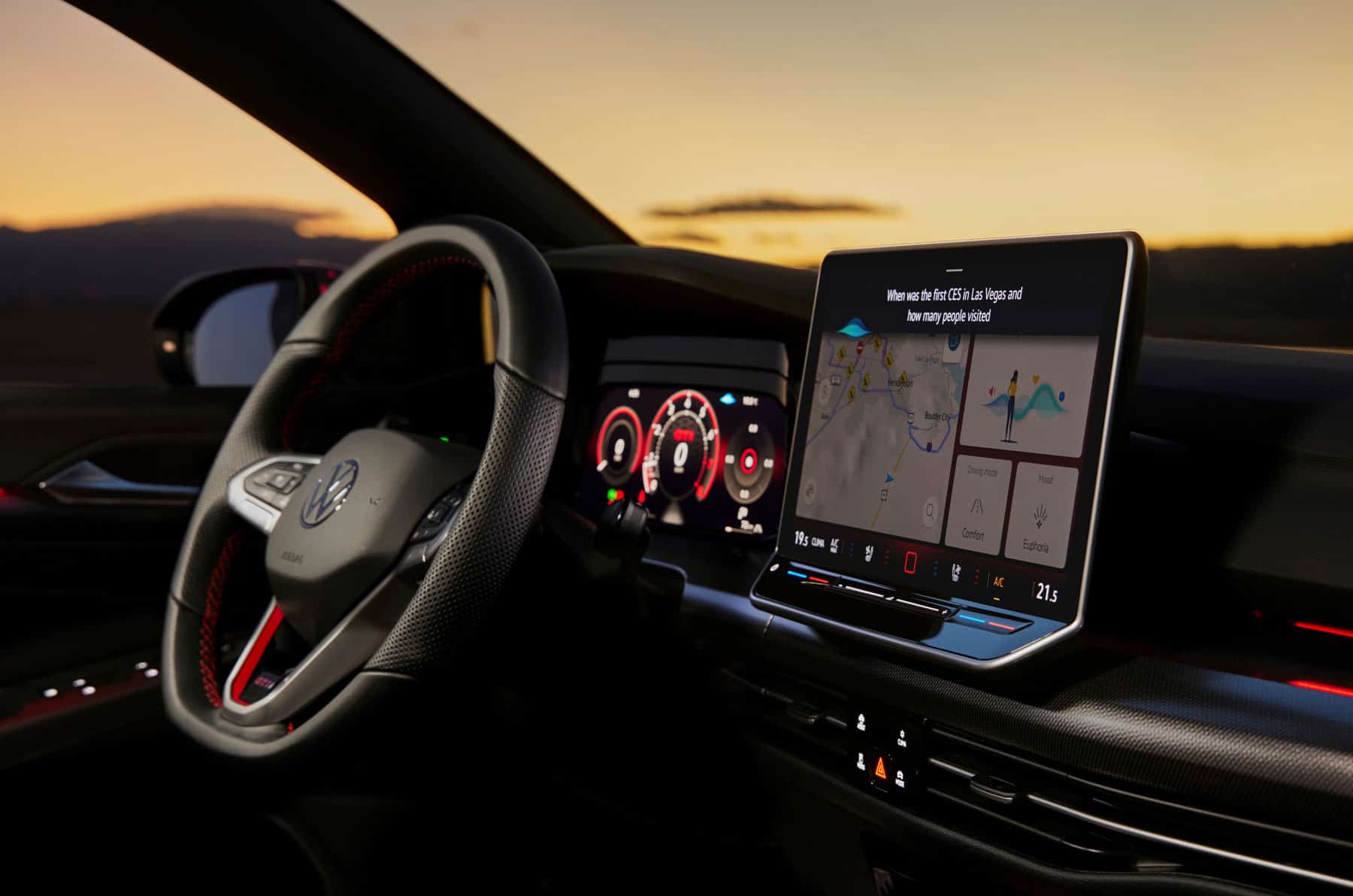
CES is currently taking place in Las Vegas. The trade fair was a showcase for the latest computer and consumer electronics technologies in the past, but now it is increasingly being hijacked by car manufacturers. To stand out at the trade fair, you must at least present world firsts or crazy innovations.
ChatGPT in the car
VW has just announced that it will be integrating the AI chatbot ChatGPT into its IDA-capable models (electric and combustion engines) in the future.
Well, you might say, hasn’t the Wolfsburg-based company had major problems with the digitalization of their cars in the past? That’s right. The lion’s share of the development is likely to come from the US company Cerence.
The Massachusetts-based company works for the crème de la crème of the automotive industry. OEMs such as Ford, Mercedes-Benz, Tata, Renault, Jaguar Land Rover, GM, and Stellantis are on the customer list – and now VW too.
What makes AI better?
Voice control in cars is nothing new. Anyone who has ever driven a vehicle with the Google Automotive OS, for example, a Volvo, Renault, or Polestar, to name but a few, will know that it generally works quite well. Provided you use stereotypical commands such as: “Navigate me to …”.
This also works more or less well for most car manufacturers using voice recognition. However, the Cerence system goes further. It uses AI capabilities to understand normal speech better. The nightmare of all users, “I didn’t understand that, please repeat!” should occur less frequently.
The user can now give commands such as: “Please start the car,” “Open the trunk!” or “Unlock the car!” as soon as they approach the vehicle. Of course, this requires microphones that cover the outside area.
The commands would already be possible now but could theoretically be used by anyone, making them a first-class security risk. This is why special security and identification features are being used. For example, special AI-controlled voice recognition is essential – see the video here:
It is doubtful whether VW will go this far. Wolfsburg is making the application particularly appealing by integrating ChatGPT capabilities. This should make it possible to have a “largely normal conversation” with the system. Suppose the answer cannot be given internally (e.g., programming a navigation address entered by voice), and a request to the “outside” via the Internet or the ChatGPT database at OpenAI is necessary. In that case, the system should ensure legally compliant privacy through anonymization.
Questions such as “When was the first CES in Las Vegas, and how many people attended?” can be answered naturally. Here, at least, Google’s OS could also score points. But the ChatGPT capabilities are, of course, far more powerful. However, some people joke that the city of Bielefeld, for example, could then no longer be found in the navigation *.
“Generative AI has the potential to fundamentally change the way we interact with the car through natural language. With Cerence’s deep automotive expertise, we are well positioned to help automakers create highly differentiated customer experiences,” says Dominik Wee, Corporate Vice President, Manufacturing & Mobility, Microsoft. Cerence has been working more closely with Microsoft on this topic since the beginning of the year. Microsoft may be also on board at VW.
What is all this doing in the car?
Good question. Such a function should prevent users from reaching for their smartphones or searching for functions in the complex menus on the touchscreen and becoming distracted while driving the car. AI-supported voice functions should also “understand” people and their linguistic idiosyncrasies better.
However, whether a typical ChatGPT conversation, which could also call the good old Turing test into question, could be a future reason to buy, can easily be doubted, especially if the integrator comes from Germany.
*a satirical falsification theory is circulating in Germany that Bielefeld does not even exist and is merely being convincingly faked. You can read about it here: https://de.wikipedia.org/wiki/Bielefeld-Verschwörung

